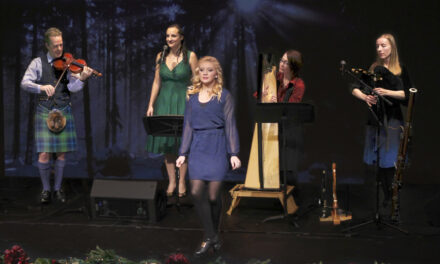If you would have looked through the catalog of artists booked for Duke Performances‘ 2010-11 season, the name Thomas Hampson would have jumped out at you as perhaps the biggest star of a roster loaded with big name performers. So, it was puzzling when it was announced that because of anemic ticket sales, Hampson’s recital would be moved from Duke’s Page Auditorium to the cozier and acoustically superior Reynolds just down the walk. Even so, there were still plenty of vacant seats that should have been filled by the reams of opera and vocal fans in this area who would have experienced one of the most memorable musical evenings in recent memory.
Hampson, probably the most celebrated baritone as recitalist, opera lead and soloist with orchestra, has been on a mission lately to educate and entertain the public with the wealth of American song that goes all the way back to the American evolution. He came to Duke, along with his accompanist Craig Rutenberg, in that capacity in a program titled “Song of America.” Although the content of this program was well publicized, one could actually hear grumblings of “What? No Mahler or Schubert?” throughout the audience which reinforced Hampson’s observation that we tend to keep “our boots on the necks of our own composers.”
Hampson is an imposing physical presence: a cross between a Disney cartoon handsome prince come to life and a linebacker for the Green Bay Packers. The program was divided into four somewhat thematic sets with 4-6 songs in each one. The first song of the evening, “My Days Have Been So Wondrous Free” was written by Francis Hopkinson, a signer of the Declaration of Independence, and is credited as being the first American art song. The rest of the set consisted of songs by Copland, Stephen Foster and Ives and they could all be characterized as light, giddy and full of good old American bravado. This was in direct contrast with the stunning second set which was the most poetic, emotive and musically substantial of the concert.
Next to love songs, many of which can be summed up as “woe is me, this unrequited love is going to kill me” (which was surprising largely absent tonight), songs about death and war seem to attract the greatest poetry and effort from composers. If you had not already marveled at Hampson’s rich, fluid and controlled vocal instrument, then these morose and moving songs nearly brought you to tears. There were greatly varied selections, including the well known “In Flanders Fields” by Charles Ives, but like a great heart-tugging central adagio of a Mahler symphony, the apex of this set – and the recital – was the young Michael Daugherty’s (b. 1955) “Letter to Mrs. Brody” based on a letter by Abraham Lincoln. Hampson, often with limited or even no physical movement, is miraculously able to convey emotions and a palpable physical embrace of the meaning of the text and this was stunningly evident in this heartbreaking message by the President to a mother on the death of her fifth son in the Civil War.
Any impression that Hampson was an aloof star was quickly laid to rest as he came out by himself before the second half started and gave an impassioned, funny and almost preaching monologue for about twenty minutes about the value of American music, especially its history told in song. He also talked about his joint project with the Library of Congress and the fabulous web site promoting 250 years of American Song (http://www.songofamerica.net/cgi-bin/iowa/home/index.html). The biggest applause came when he directly and unabashedly decried the recent proposal by some of our least enlightened lawmakers to cut funding for the NEA, NPR and other Arts organizations. His speech was so inspiring that it may have even overshadowed what was the best vocal recital I have ever heard.
Translations of texts – although of course absolutely necessary – are no substitute for hearing impeccable diction in your own language and having it wash over you with no barriers. With the exquisite and sensitive playing of Craig Rutenberg on piano, Hampson’s evocation of the history of our country in song was a revelatory experience. He elevates what may come across as trite ditties in lesser hands/voices to great poetry and music. This characteristic was summarized in the final encore of the evening: Stephen Foster’s “Beautiful Dreamer.” This very familiar, often maligned 19th century parlor song was musical phrasing, beauty of tone and textual painting personified. As Hampson urged everyone, revisit your musical heritage and stop trying to label American composers as “our Brahms” or “our Tchaikovsky.” Hampson made a believer out of me.











